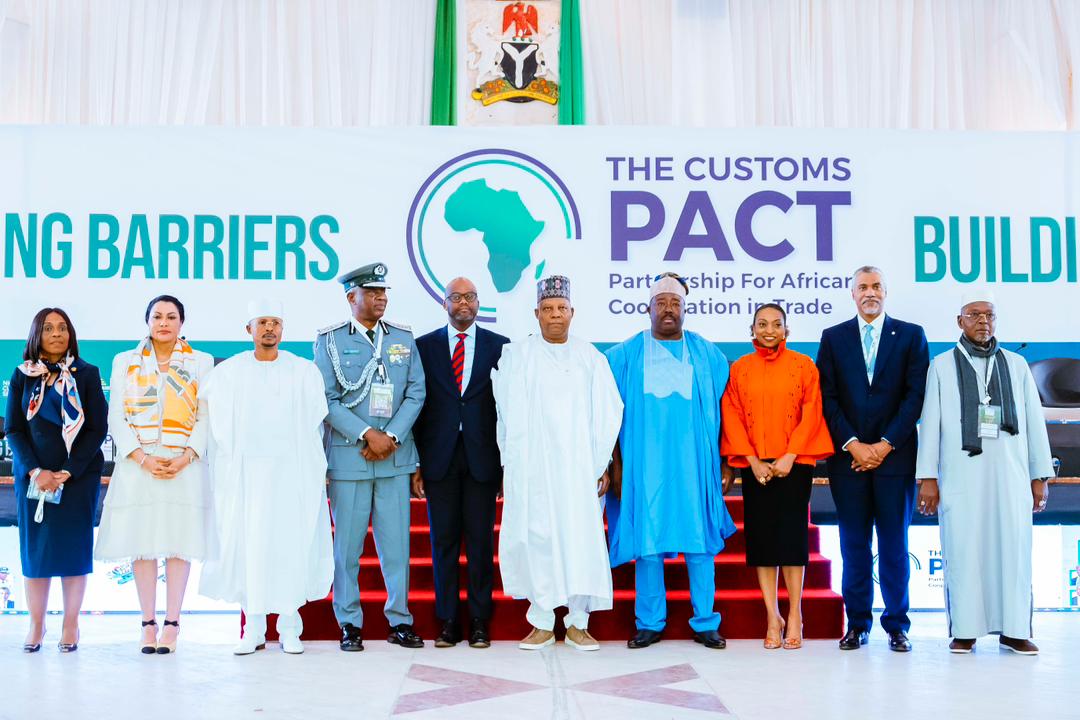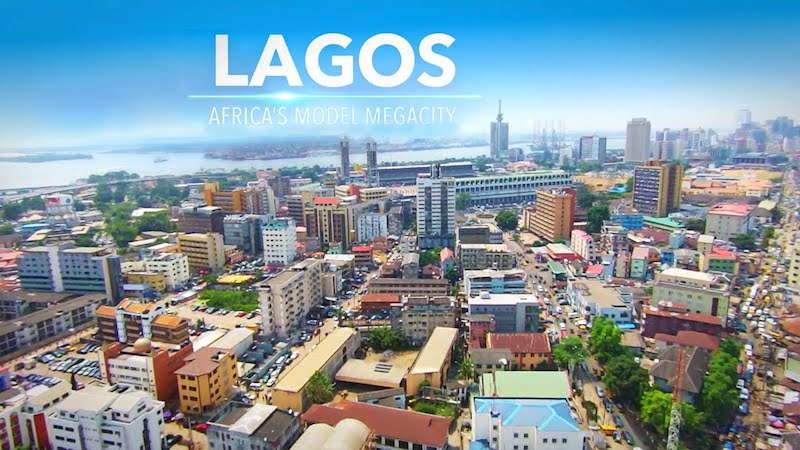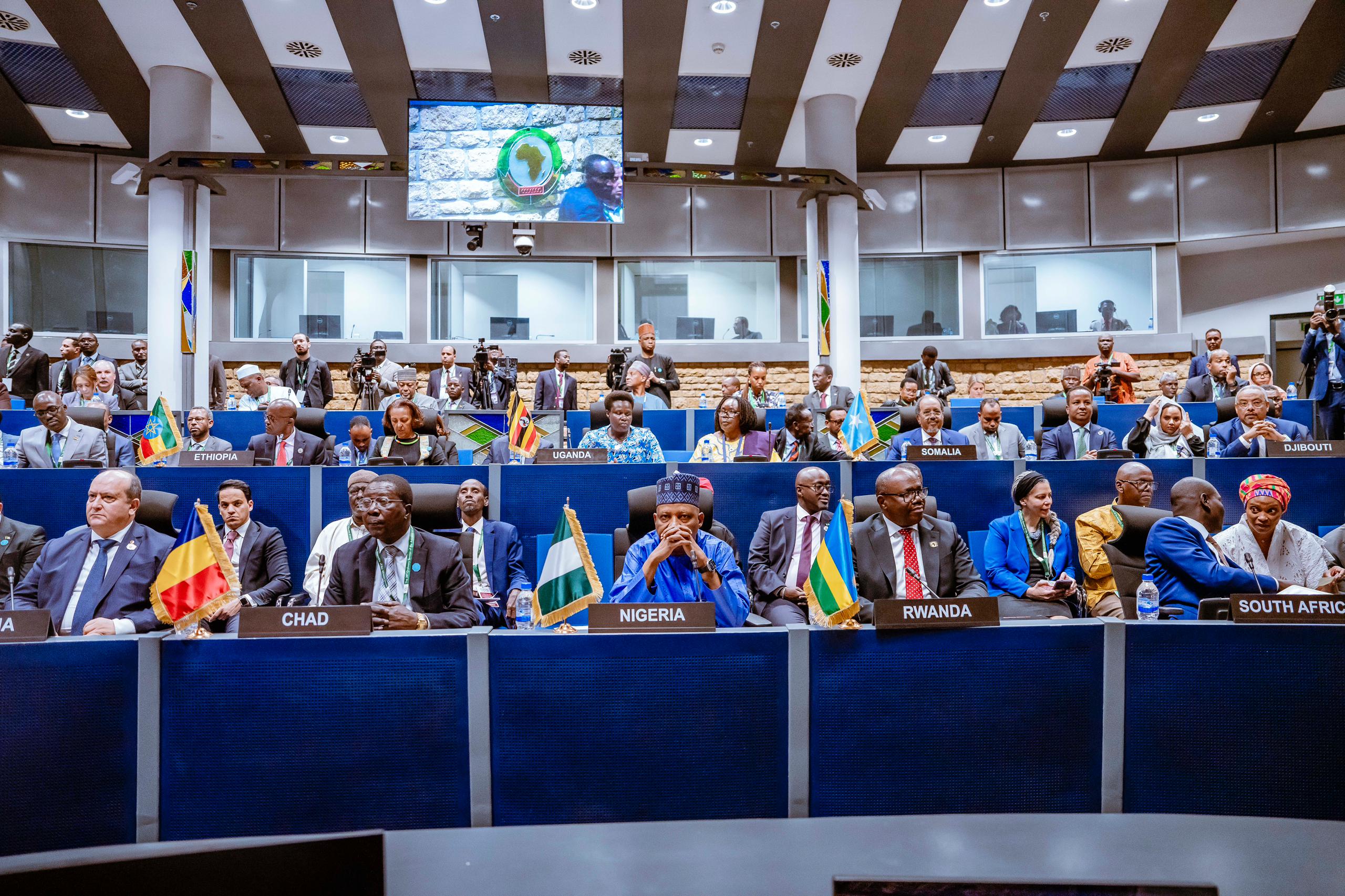
President Bola Ahmed Tinubu has restated Nigeria’s commitment to advancing efficient, technology-driven borders across Africa, warning that fragmented markets and outdated border systems continue to undermine the continent’s economic potential.
The President delivered the message on Monday in Abuja while declaring open the Customs Pact – Partnership for African Cooperation in Trade (C-PACT), a continental initiative aimed at strengthening intra-African trade and customs integration.
Represented by Vice President Kashim Shettima, President Tinubu said Africa cannot achieve large-scale industrialization or withstand global economic shocks if its borders remain inefficient. He stressed that African nations must adopt disciplined, modernized systems that match global technological standards and eliminate long-standing bottlenecks to trade.
“Nigeria remains firmly committed, structurally and operationally, to building an Africa that trades by design—where borders facilitate opportunities rather than inhibit them,” the President said. He added that despite Africa’s natural resources and human capital, these advantages mean little if economies remain isolated behind slow borders and fragmented markets.
The President emphasised that integration, not size or resources, creates resilient supply chains, stronger bargaining power, and a unified continental market. He noted that while Africa has taken the bold step of agreeing to integrate through the African Continental Free Trade Area (AfCFTA), meaningful progress now depends on execution and measurable outcomes.
READ ALSO: New DGSS Assumes Office
Tinubu said success will not be judged by communiqués but by shorter border-crossing times, efficient movement of goods, reliable settlement systems, and improved experiences for traders, manufacturers, and logistics operators across the continent. He said Nigeria’s own economic reforms—including FX unification, removal of fuel subsidies, improved port operations, and adoption of the Pan-African Payment and Settlement System (PAPSS)—were designed to remove barriers and strengthen competitiveness.
The President highlighted ongoing institutional alignment to support trade, citing reforms across the Nigeria Customs Service, Nigerian Ports Authority, Standards Organisation of Nigeria, NEPC, NEXIM Bank, and the Central Bank of Nigeria. He said these agencies now operate in a “unified trade-enablement architecture,” reducing inefficiencies and enabling seamless regional commercial engagement.
Tinubu also presented data showing the impact of recent reforms. He noted that intra-African trade is projected to rise from 15 percent in 2023 to 25 percent by 2030 under AfCFTA, while Nigeria’s non-oil exports to African markets grew by 38 percent in 2024. Cargo clearance times at major seaports have reduced by 30 percent, aided by digital reforms and automation.
He identified the National Single Window as a central pillar of Nigeria’s strategy, announcing that phase one of the platform will go live in March 2026 with full rollout by December 2026. The system will automate inter-agency data sharing, speed up cargo clearance from 21 days to under seven, and align Nigeria fully with AfCFTA digital frameworks.
Earlier, Minister of Finance Wale Edun, represented by Minister of State Dr. Doris Uzoka-Anite, urged African nations to dismantle remaining trade barriers and adopt global best practices. Minister of Industry, Trade and Investment, Dr. Jumoke Oduwole, said Nigeria’s reforms under the Renewed Hope Agenda have positioned the country for stronger regional integration.
International stakeholders also expressed support. WCO Secretary-General Ian Saunders praised Nigeria’s reforms, while Afreximbank’s Executive Vice President Kanayo Awani endorsed ongoing modernization efforts. Comptroller-General of Customs Bashir Adeniyi urged African customs agencies to strengthen collaboration, saying, “We cannot continue to work in silos.”
AfCFTA Secretary-General Wamkele Mene assured that the Secretariat will work closely with Nigeria to ensure full implementation of C-PACT and improved trade facilitation across the continent.















No Comments